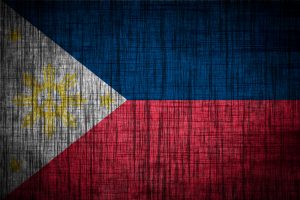Philippines Vice President Sara Duterte has described the decision to remove 75 police personnel from her security detail as “political harassment.”
“Let us spare our people from all the lies. Let us call it what it is – a clear case of political harassment,” Duterte said in her four-page open letter addressed to the country’s police chief. She added that it was a “targeted maneuver” since the reassigned cops were mostly from Davao City where she previously served as mayor.
She found it suspicious that the reduction of her security group was done after she resigned as education secretary and after she skipped the recent State of the Nation address of President Ferdinand “Bongbong” Marcos Jr. She expressed concern about the safety of her family and insisted that the threat of harassment could be coming from within the government.
But the country’s police chief clarified that the reshuffle which affected the security group of Duterte was part of a “rationalization” program intended “to improve police visibility” around the country. He also revealed that Duterte still has 389 bodyguards: 358 from the military and 31 from the police. The country’s justice secretary said that this number is actually bigger than the security group of the president.
Critics of Duterte lambasted her reaction as “an unnecessary display of arrogance of power.” A former senator noted that the open letter was “wrong” and “shameful” for a leader aspiring to be the next president. Some lawmakers believe that Duterte’s outburst was meant to divert legitimate criticisms about the vice president’s decision to continue with her personal trip to Germany even while a massive flooding and oil spill disaster displaced more than a million people in late July.
Rep. Florida Robes, chairperson of the House Committee on Good Government and Public Accountability, urged Duterte to stick to the facts. “In the case of the VP’s childish tantrums against the move to reduce, by little, her garrison of guards, she has muddled the issue, supplanting facts with theatrics,” the congresswoman said.
Meanwhile, the country’s Presidential Adviser on Poverty Alleviation suggested that the huge funding for the security of Duterte could have been allotted to social services. “This means that more than half a billion pesos have been spent on the lavish security of one individual, a sum that could have been better allocated to building much-needed school infrastructure or providing food for the people,” he told the media.
According to the spokesperson of the country’s former vice president, Duterte’s predecessor only had 108 security personnel in 2016, which was reduced to 83 during the pandemic.
But Duterte’s allies in the Senate wanted more protection for the vice president. A former police general asked retired cops and soldiers “who are good at unarmed combat and volunteering” to provide “security and protection” to Duterte. Another senator asked former rebels who availed of amnesty to also volunteer for Duterte.
During a Senate hearing, police and military authorities assured legislators that there’s no security threat against the vice president whom they claim remains popular among the people. The police chief eventually accepted the recommendation of pro-Duterte senators to allow the vice president to choose cops from Davao to be part of her security group.
This latest spat between the vice president, the police, and administration allies reflects the widening rift between the Duterte and Marcos political dynasties which initially formed a unity team during the 2022 election. The tension could get worse since the Marcos government has shifted its stance on the work of the International Criminal Court which is currently prosecuting former President Rodrigo Duterte and some of his subordinates regarding their role in the bloody “war on drugs.”

































